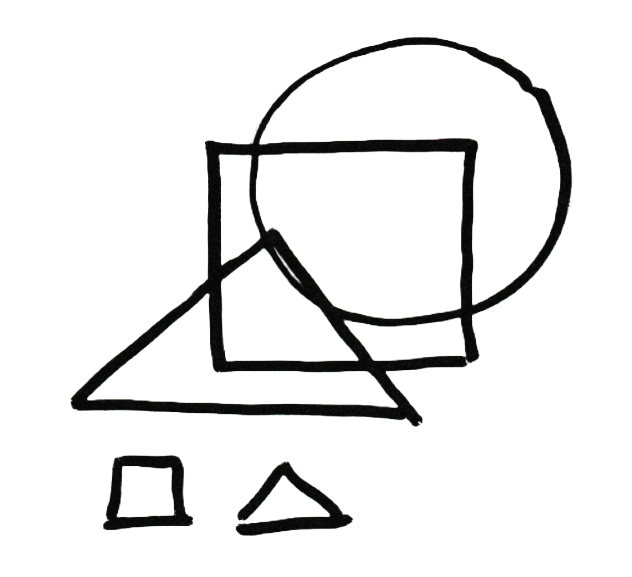Personalised Recovery and Resilience Kit (PeRRK)
People living with bipolar face significant risks of engaging in unpredictable, time-limited, yet devastating behaviours such as substance abuse, hypersexuality, relationship breakdown, self-harm, and financial recklessness. Current mental health support strategies focus primarily on regulating mood in order to reduce the likelihood of further risky behaviours. However, this support is often only available after people have already engaged in risky behaviours and suffered the negative consequences. We think it would be better for people to learn more about risk-taking and decision-making before they experience mood episodes. Therefore, people are more aware of what is happening to them and make better decisions that may not have the same negative outcomes. However, this is a new area of research that is still being developed.
This is why we are working on the Personalised Recovery and Resilience Kit (PeRRK), a participatory approach inspired by the precision and wisdom of Japanese craftsmanship. It encapsulates the transformative potential of human-AI collaboration. You may find that Japanese metaphors work well for you, but there are alternative metaphors that will work with the structure of the kit; feel free to personalise your individual kit by creating your own personal metaphor. However, for the purpose of creating a general outline for this kit, we are using the structurally supportive and sound principles of Japanese craftmanship. Below you will find the kit, where you can click on each section to learn more about the different elements.
Access the PeRRK in Italian here.
Access the PeRRK in Portuguese here.
Access the PeRRK in Spanish here.
The Kit

Why This Matters
Bipolar is a complex mental health condition that profoundly impacts those living with it, as well as their families and communities. The UK’s NHS provides more information about the condition. Despite advancements in treatments and technologies, managing bipolar often requires more than clinical interventions. It demands empathy, learning from lived experience, self-management, creativity, and adaptability. These human qualities remain irreplaceable, even in an era of sophisticated technology.
By bringing together the lived experiences of individuals with bipolar, insights from caregivers and mental health professionals, and technological resources, we are developing a kit that empowers people to navigate their unique journeys with greater confidence and support. By helping people to live in recovery, they will be empowered to live the lives they want to live.

The Earthquake Metaphor
Living with bipolar can feel like navigating a landscape prone to sudden, unpredictable earthquakes. The highs and lows, like tremors and aftershocks, can disrupt daily life and leave individuals and their support networks striving to find stability. How do we prepare for such uncertainty while fostering resilience and recovery?

By using a second metaphor, the PeRRK draws inspiration from the earthquake-resistant design of Japanese pagodas, structures that have withstood centuries of seismic activity. These pagodas balance flexibility and strength, using principles such as interlocking joints and a central pillar to absorb shocks while maintaining stability.
In the context of bipolar, the pagoda becomes a metaphor for resilience: a framework where each “tier” represents a vital aspect of well-being, from physical and emotional health to social support and coping strategies. Human insights, combined with online resources, help co-create tools that align with individual needs, building a system that adapts to life’s challenges, just as the pagoda adapts to the forces of nature. To access a full description of the pagoda metaphor, click here.

Crafting Resilience
Resilience isn’t built overnight, it’s an ongoing process of learning, adapting, and growing. In Japanese craftsmanship, principles like kaizen (continuous improvement) and wabi-sabi (acceptance of imperfection) provide timeless wisdom that resonates deeply in mental health care.
Kaizen teaches us to embrace incremental, steady progress rather than seeking perfection all at once. In mental health, this might mean celebrating small wins, like sticking to a daily routine or reaching out for support, as these build a foundation for long-term well-being.
Wabi-sabi, on the other hand, reminds us to find beauty in imperfection and impermanence. It’s about accepting that life, recovery, and even our coping strategies won’t always be flawless, and that’s okay. For someone living with bipolar, this might look like embracing setbacks as opportunities for growth and learning.
For instance, a participant in our project described their recovery journey as a patchwork quilt: each piece imperfect but contributing to a unique, meaningful whole. This quilt, much like resilience itself, is strengthened over time through care and thoughtful effort.

The Master-Apprentice Relationship
In craftsmanship, the relationship between master and apprentice is a cornerstone of learning and growth. The master imparts not just skills but also values—patience, precision, and dedication. This same principle plays a pivotal role in mental health care and our PeRRK project.
Mentorship fosters collaboration and trust between individuals with bipolar, caregivers, and mental health professionals. Each brings unique expertise: lived experience, compassionate care, or clinical knowledge. Together, they co-create tools and strategies tailored to individual needs, blending wisdom from every perspective.
For example, one participant shared how a peer worker, a fellow individual with lived experience of bipolar, helped them through challenging times. By offering practical advice and emotional support as an equal, the mentor modelled resilience and self-compassion, inspiring them to approach their own journey with greater confidence.
Mentorship creates a ripple effect, empowering both mentor and apprentice while enriching the entire community. It’s this collaborative spirit that drives our co-design approach, ensuring the PeRRK reflects real-world challenges and solutions.
 Breaking Down Complexity
Breaking Down Complexity
Complex challenges, like managing bipolar, can feel overwhelming. But just as craftsmen approach intricate designs by breaking them into manageable steps, our PeRRK adopts a gradual, participatory approach to co-design solutions.
This means working collaboratively, step by step, to create tools that are meaningful, practical, and easy to use. Participants—individuals with bipolar, caregivers, and professionals—contribute insights in stages, ensuring the process is neither rushed nor overwhelming. Each small step builds toward a cohesive framework that reflects the lived realities of managing bipolar.
This step-by-step approach ensures that every voice is heard and that the resulting tools are rooted in real-world needs and experiences.
 Tailoring Solutions: Respect for Individuality
Tailoring Solutions: Respect for Individuality
No two journeys with bipolar are the same, which is why the PeRRK is designed with respect for individuality at its core. Inspired by craftsmanship, which honours the unique properties of each material, the PeRRK tailors its tools to meet the specific needs, strengths, and vulnerabilities of each person.
Guided by technology, the kit dynamically organises contributions from individuals, caregivers, and professionals into a meaningful, personalised framework. For example, one participant shared how their personalised plan included calming sensory aids for acute distress and journaling prompts to reflect on progress. These tailored strategies helped them feel more in control and supported on their unique journey.
Personalisation, powered by human insights and AI, ensures that the PeRRK adapts to each individual’s evolving needs. This respect for individuality fosters a sense of ownership and empowerment, leading to better outcomes and greater resilience.

Preparedness for Acute Situations
In moments of acute distress, preparedness is everything. Inspired by the principles of mottainai (efficiency) and waza (mastery through repetition), the PeRRK equips individuals with pre-prepared tools designed for quick, effective responses to mental health crises.
Mottainai teaches us to focus on what is essential—using resources purposefully to stabilise a situation without adding unnecessary burden. This translates into simple, efficient interventions like a sensory grounding exercise or a calming mantra that can be quickly accessed when emotions run high.
Meanwhile, waza emphasises the importance of mastering techniques through repetition so they become second nature. For example, one participant shared how practising paced breathing daily helped them instinctively use it during a moment of extreme anxiety, preventing escalation and restoring a sense of calm.
The PeRRK incorporates these principles by offering quick-access tools such as breathing exercises, grounding techniques, and sensory aids. These interventions are designed to provide immediate relief while creating space for recovery and reflection.
 Finding Strength in Repair
Finding Strength in Repair
Life’s challenges can leave us feeling broken, but the Japanese art of kintsugi reminds us that repair can lead to something even more beautiful.
Kintsugi, or “repair with gold,” involves mending broken pottery with precious metals, highlighting the cracks rather than hiding them. The result? A unique, resilient piece that tells its story through its scars.
In mental health and recovery, kintsugi is a powerful metaphor for finding strength in setbacks. The PeRRK embraces this philosophy, encouraging individuals to view challenges not as failures but as opportunities for growth and transformation.
Recovery isn’t about erasing what’s broken, it’s about embracing the imperfections and emerging stronger, more vibrant, and uniquely you.